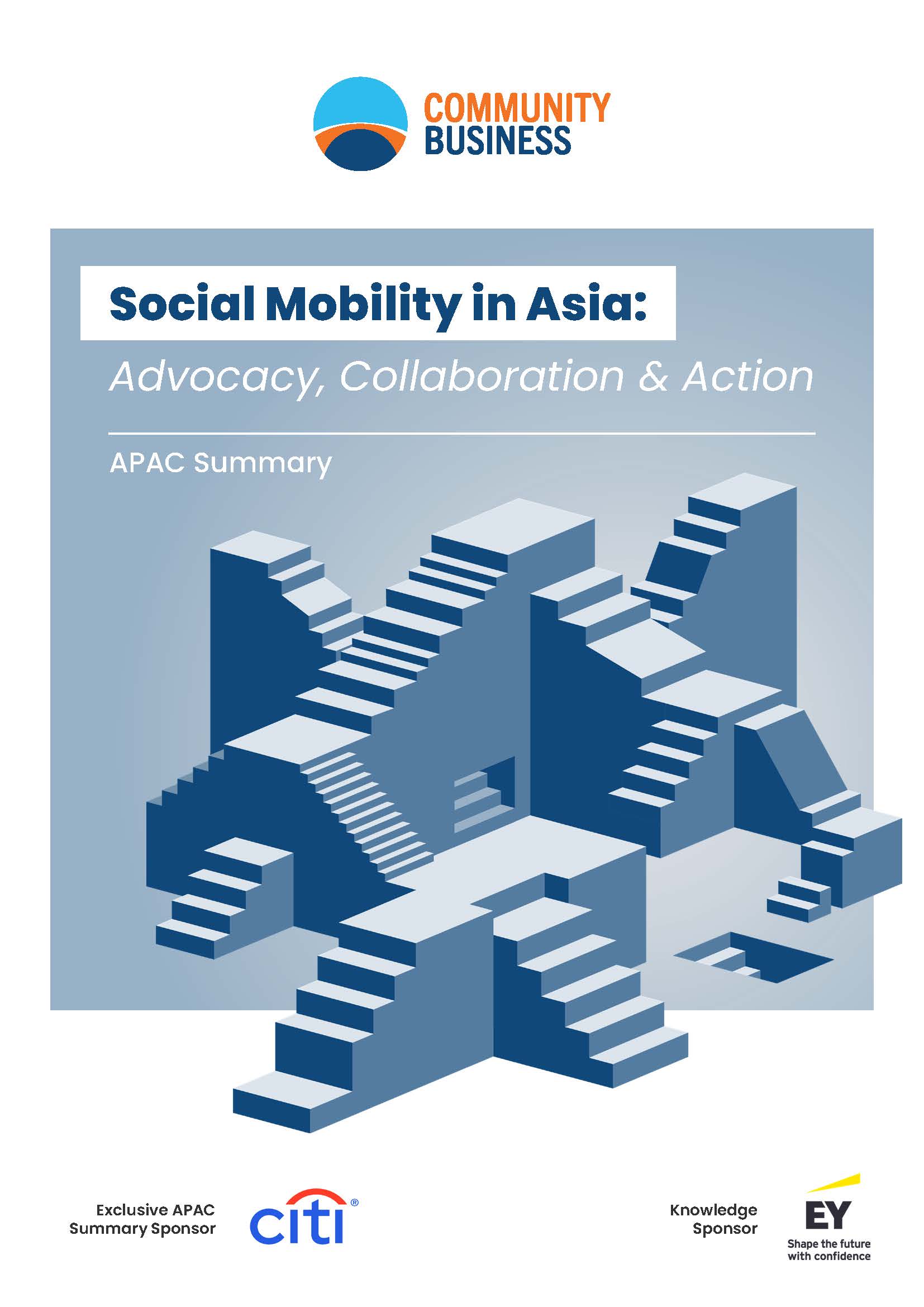Social Mobility in Asia (APAC Summary)
Overview
As conversations around diversity, equity and inclusion evolve and become more sophisticated in Asia and we start to dig into the importance of an intersectional lens when promoting equality, the need for a deeper understanding of social mobility and particularly its role in driving progress in organisations has become more poignant. Social mobility is a necessary and timely theme to investigate as global and regional conversations have increasingly picked up on the topic, with power, privilege and access to opportunity being explored and crucially, given due recognition for their role in one’s advancement both in the workplace and in wider society.
The investigation of social mobility provides an important springboard to progress work in many facets of DE&I and wellbeing. In fact, it could be argued that social mobility and access to opportunities underpin all the work that we do, given the personal and intrinsic nature of the topic. Social mobility affects everyone to a certain degree and often the impacts can go unacknowledged, meaning that it is vital to shine a light on the central nature of its theme and its implications for driving progress in Asia and beyond.
The publication covers:
- Overview of Social Mobility in Asia: The report explores how social mobility varies across different Asian markets, shaped by cultural, historical, and economic factors. It examines both challenges and opportunities in enhancing socio-economic mobility.
- Key Drivers of Social Mobility: The research highlights major factors influencing social mobility, such as education, economic policies, intergenerational wealth, and workplace inclusivity. It also emphasizes the role of businesses in shaping equitable opportunities.
- Regional Trends and Comparisons: Using data from eight markets, the report identifies key patterns in social mobility and how different markets perceive opportunities.
- Recommendations for Action: The report outlines strategies for businesses and communities to drive meaningful change, including competency-based hiring, reducing educational inequalities, and improving access to professional networks.

As a not-for-profit organisation, Community Business relies on sales of our publications to fund our research into responsible and inclusive business practices in Asia. That said, we are always open to collaboration and would like to share our work with the wider grassroots community. If you or your organisation are interested in receiving a discount or complimentary copy of our work, please get in touch to share more details about the work that you do and how it might be of benefit to you. Click here to request for Grassroots Partner access.
If you have a discount code, use it at checkout!
